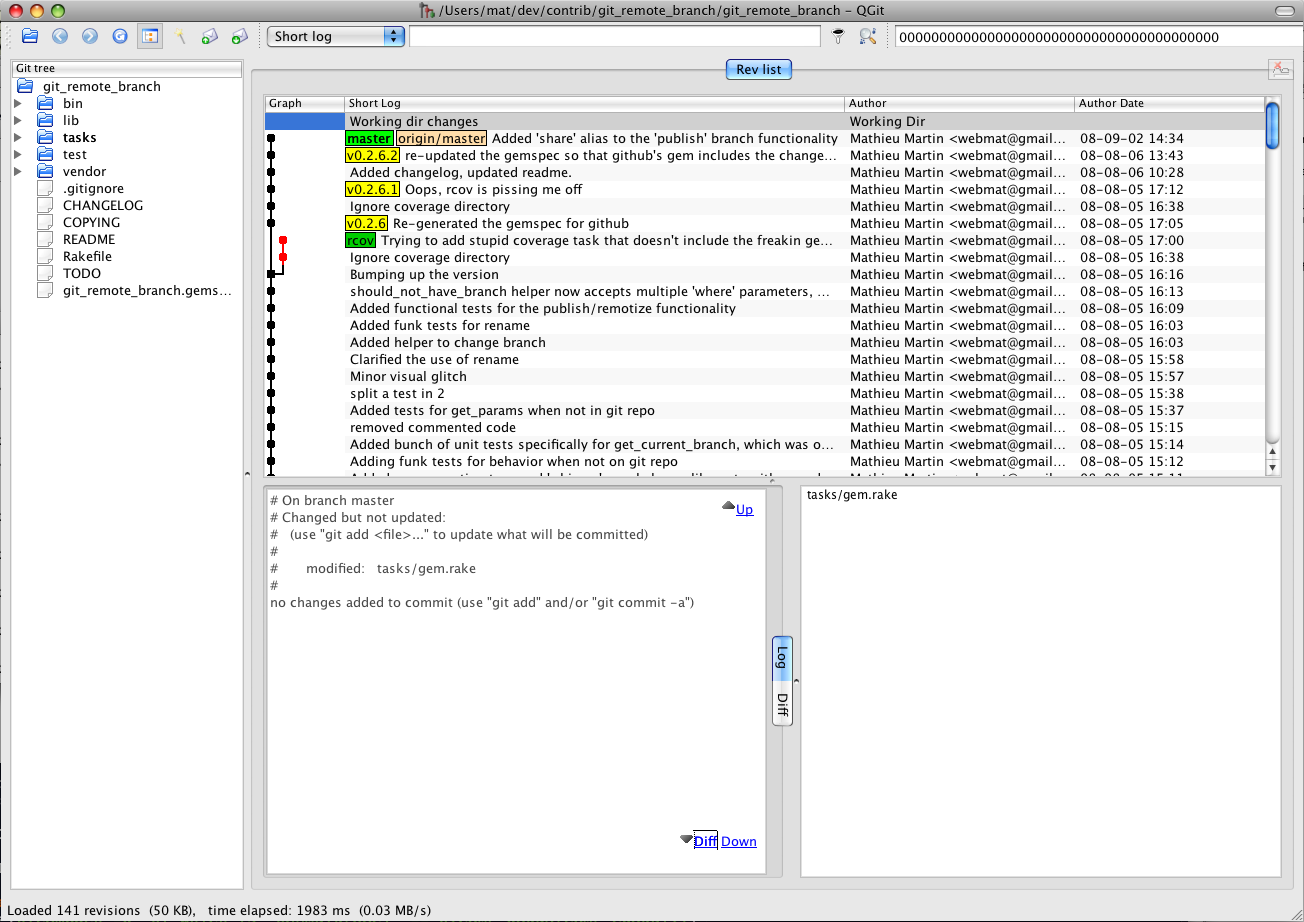git_remote_branch is github-agnostic
Josh Knowles recently suggested that maybe I could merge grb’s functionality to the github gem.
Both gems being command-line tools that help you use Git in a friendlier manner, the question makes a lot of sense. It makes so much sense in fact, that I decided to blog about it. A post about it will scale much better to answer other users who may potentially ask the same question.
So here’s a slightly edited excerpt from the answer I gave him. And yes, I also ramble in email.
Read on →
